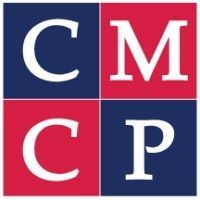Chaminade-Madonna school counselors assist students in numerous ways to navigate their high school academic career. Counselors meet with students (and families) to monitor academic progress and provide strategies for academic success. During course scheduling, counselors discuss various academic pathways (including Honors and Advanced Placement course selection) and advise students regarding an appropriate and balanced course load.
Advancement Placement
| AP Course Offerings |
|---|
| AP American Government (DE) |
| AP Biology (DE) |
| AP Calculus AB |
| AP Chemistry |
| AP Economics (DE) |
| AP English 3 (DE) |
| AP Human Geography |
| AP Spanish Language |
| AP Statistics |
| AP Studio Art |
| AP United States History (DE) |
| AP World History |
Graduation Requirements
In accordance to policies established by the Florida Department of Education and SACS, Chaminade-Madonna College Preparatory has established the following graduation requirements.
| Credits | Curriculum Areas |
|---|---|
| 4.0 | Theology |
| 4.0 | English |
| 4.0 | Mathematics |
| 4.0 | Social Studies |
| 3.0 | Science |
| 2.0 | Foreign Language (Consecutive years) |
| 1.0 | HOPE or Personal Fitness and Life Management |
| 1.0 | Fine Arts/Practical Arts |
| 5.0 | Electives |
Additional Requirements
- Un-weighted 2.0 cumulative GPA
- Completion of 100 service hours (25 hours completed each year enrolled at CMCP) Class of 2020 onward
- Completion of Encounter Retreat Program
- Completion of 7 credits per year
GPA
GPA System of CMCP: The CMCP grade point average (GPA) that appears on student transcripts is based on the following system that weights grades according to academic level. This unique system is used in the college admissions process to display the rigor of our academic program.
| Range | Letter Grade | AP | Honors | Regular |
|---|---|---|---|---|
| 90-100 | A | 6.0 | 5.0 | 4.0 |
| 80-89 | B | 5.0 | 4.0 | 3.0 |
| 70-79 | C | 4.0 | 3.0 | 2.0 |
| 60-69 | D | 1.0 | 1.0 | 1.0 |
| 59 & Below | F | 0.0 | 0.0 | 0.0 |
Schedule Changes
Information will be updated soon.
Study Skills
Have you ever heard someone say that high school grades don’t matter? It’s true that your college professor won’t care about the grade you got in 10th grade geometry, but he will be interested in the study skills you learned along the way.
High school is an important time to learn good study habits and improve your studying techniques. Here are 10 study skills for high school students to help you succeed in college.

1. Manage Your Time Wisely
Get used to keeping track of your time in high school and it will pay off for you in college. You might take as few as three or four classes per semester in college, which is only about 15 hours per week actually spent in class. While you may not sit in class for as many hours as you did in high school, your reading assignments in college will be doubled. Managing your free time is as important as managing your “busy” time.
2. Organize!
Keep a weekly or monthly planner or use a journal. If planners aren’t your thing, try making “to do” lists, or using your phone calendar to keep track of assignments and important dates and events. Relying on “just remembering” can be difficult when your obligations and assignments start to pile on.
3. Identify How You Learn
Find out what works for you. Are you a flash card girl? Maybe you’re a guy who writes down vocabulary words 20 times each to learn them. Experiment with new things but stick to the tried-and-true study skills that have worked for you in the past.
4. Is There a Better Way to Study?
A lot of people cram for tests by studying into the wee hours the night before. Take an honest look at your study habits. Repeated, short sessions of studying are much more effective than a six-hour cram session the night before a final.
5. Catch Some Zzz’s
Don’t stay up until 4 a.m. studying for a test! It won’t work now and it won’t work in college. Sleep has been scientifically documented to be a significant factor on your GPA as well as how well you perform on other tasks.
6. Attend Class
While high school attendance is a strict business, it’s good practice for college. Most college classes will only meet once or twice per week, so they will count that much more. Many professors only allow two to three absences for the entire semester. Miss more than that and you’re grade sinks – or worse.
7. Ask Questions
Don’t be afraid to ask your teachers for help! They aren’t there to scare you; they’re a valuable resource. Students in your class are another great source of information and support. Be sure to exchange phone numbers and email addresses with them during your first few weeks of class. They will not only help with schoolwork, but some of them may even turn into long-time friends.
8. Make Study Groups
Studying with other students and working on assignments together can be helpful too. You can clarify points you may not understand, and help others by explaining the parts they find hard. Teaching others may even help you grasp a better understanding of the information as well.
9. Hone Those Writing Skills
Learn the fine art of the college essay and also be sure to take notes in class. Writing and note taking are important study skills for high school students transitioning into college. Don’t write everything your teacher says, but be sure to highlight the important points. You can also compare notes in with other students to review parts of the lecture you found difficult or may have missed.
10. Study Outside
Don’t just study in the library. Choosing multiple places to study will keep your boredom level low and may even help you perform better on tests.


